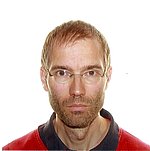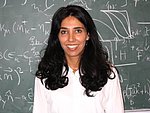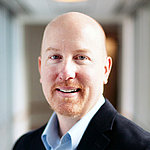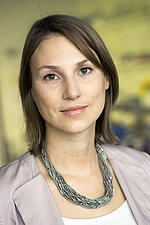
ViCoM Young Researchers Meeting 2016
Invited Speakers
Stefaan Cottenier, Center for Molecular Modeling, Belgium

In a previous life, Stefaan Cottenier has been educated as an experiment physicist. In the mid-nineties, he got seduced by the opportunities offered by the then newly appearing user-friendly computer codes for applying density-functional theory to crystals. Since that time, he enjoys applying DFT to a variety of fundamental and applied solid state problems, often in collaboration with experimental partners. Stefaan has a special interest in the methodology of teaching, and uses insights from this field to train new generations of (experimental) materials scientists in the use of quantum-based simulation tools for solids.
Cristiane de Morais Smith, Inst for Theoretical Physics, Univ of Utrecht, NL

Cristiane de Morais Smith is working on strongly correlated systems in condensed matter physics, in particular low dimensional quantum systems. In those systems, the quantum Hall effect can be observed and strongly correlated electrons may lead to high temperature superconductivity. Honeycomb lattices as in graphene and carbon nanotubes are interesting realizations of those systems. De Morais Smith also studies cold atoms in optical lattices, which serve as ideal models for complex problems in condensed matter systems. Such analogies between different systems offer valuable insights.
Her research mainly relies on analytical techniques. C. Morais Smith won the "Professeur Boursier du Fond National Suisse" in 2001 and the prestigious VICI award of the Netherlands in 2007.
Chris Wolverton, McCormick School of Engineering, Northwestern Univ, USA

Prof. Christopher M Wolverton is Professor of Materials Science and Engineering at the McCormick school of Engineering, Northwestern University, Evanston, IL. His research group works on computational materials science, in particular first-principles quantum mechanical simulation tools. These computational tools have advanced to the point now where materials may be "synthesized virtually", with their properties predicted on a computer before ever being synthesized in a laboratory.
Current research efforts center on materials for alternative energies and sustainability (hydrogen, batteries, light-weight metals, fuel cells, thermoelectrics), including the discovery of novel hydrogen storage materials, phase transformations in metallic and ceramic alloys, microstructural evolution during aging, and the theoretical prediction of new materials. In addition to application, Prof. Wolverton also works on method development. While current first-principles electronic structure methods are very accurate for a wide class of materials, they suffer from unfavorable scaling with system size, making the treatment of large-scale structures unfeasible. By coupling first-principles with, e.g., Monte Carlo methods (capable of simulating millions of atoms based on statistical techniques) allows for truly predictive models of microstructural evolution and mechanical properties in novel materials.
Kraft, Daniela, Leiden Institute of Physics (LION), Universiteit Leiden, NL

Daniela Kraft is Assistant Professor at the Institute of Physics at the Leiden University. Her work spans a wide range of topics in experimental soft matter science such as the the design of anisotropic and patchy particles, particle-covered emulsions and virus particles.
Her working group is specifically working on the synthesis of novel types of colloidal particles with anisotropic shapes and interactions. Due to their resemblance to molecular systems, such well defined mesoscopic (20nm-1μm) colloidal toy models can be used to probe fundamental physics questions. Alike atoms, colloidal particles can form colloidal molecules. Kraft and coworkers managed to sythesize colloids with a well-controlled bond angle such as colloidal water and ammonia.
In 2013, Kraft received the Veni Grant from the Netherlands Organization for Scientific Reserach (NWO) for developement of an individual reserach line for 3 years at the Leiden University.
Sensengasse 8/12
A-1090 Vienna
AUSTRIA
T: +43-1-4277-51401
F: +43-1-4277-9514


